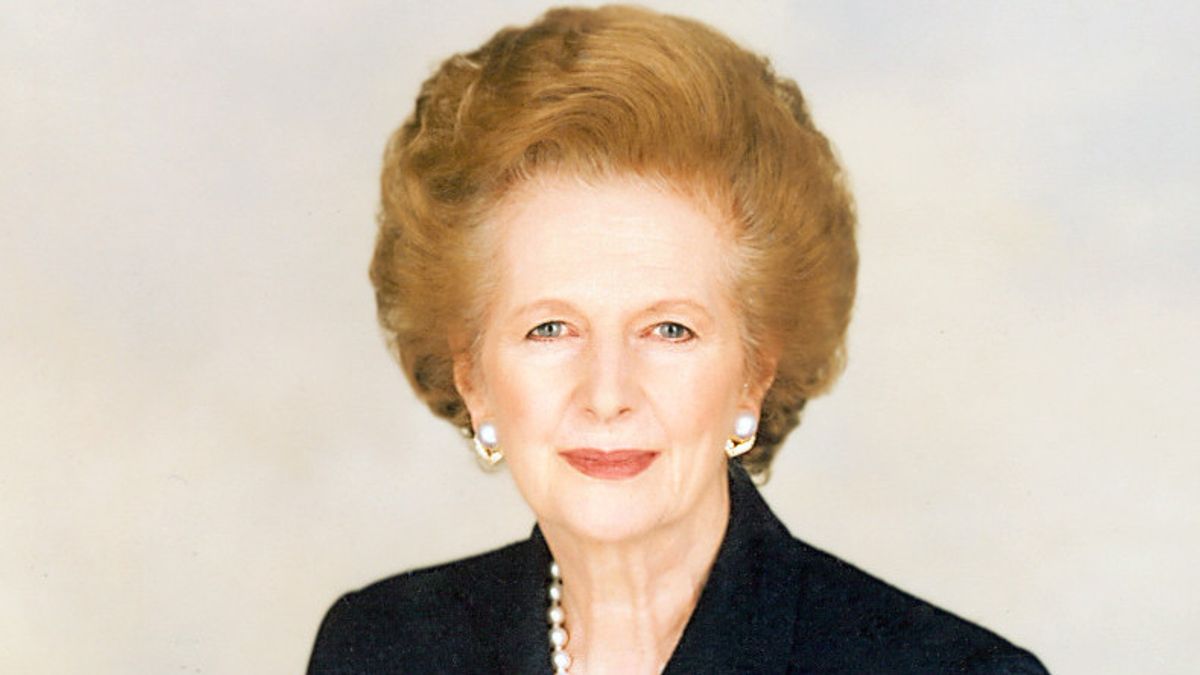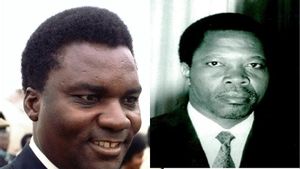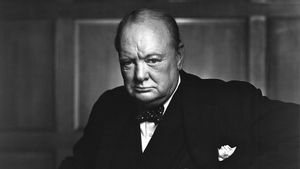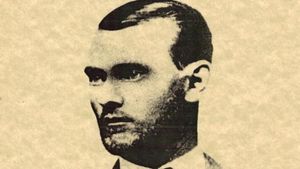JAKARTA - On April 8, 2013, former British Prime Minister Margaret Thatcher died at the age of 87. She died of a stroke. Thatcher was British PM between 1979 and 1990 of the Conservative Party and became Britain's first female PM.
Thatcher's health made headlines in 2010. She skipped a celebration at 10 Downing Street held in honour of David Cameron's 85th birthday. Then, in November 2010, Thatcher spent two weeks in the hospital because of a condition that was later known to cause painful muscle inflammation.
In 2011, Thatcher attended a number of major events, including Prince William's wedding in April 2011 and the unveiling of a statue of Ronald Reagan in London in July 2011. Afterward, Thatcher's office in the House of Lords was permanently closed. The closure is considered the final marker of her public life.
Political career
Quoting from Biography, Thursday, April 8, Thatcher briefly ruled out politics to study the law in 1952. She and her husband welcomed twins Carol and Mark the following year.
After completing her training, Thatcher qualified as a lawyer in 1953. But she hasn't stayed away from the political arena for too long. Thatcher won a seat in the House of Commons in 1959, representing Finchley.
Thatcher was seen as a woman on the rise until she was appointed member of parliament under the secretary for pensions and national insurance in 1961. When the Labour Party took control of the government, Thatcher became a member of the Shadow Cabinet, a group of political leaders who would hold cabinet-level positions if her party was in power.

When the Conservative Party returned to power in June 1970, Thatcher was appointed Home Secretary for education and science. One of her policies was to remove the free distribution of milk in schools.
It frustrates a lot of people. Not because of all the bad press reports surrounding her actions. But because she had trouble getting Prime Minister Edward Heath to listen to her ideas.
Visibly disillusioned with the future of women in politics, Thatcher said "I don't think there will be a female prime minister in my life", as she appeared on TV in 1973.
Thatcher soon proved herself wrong, when the Conservative Party lost power in 1974, Thatcher becoming the dominant force in her political party. She was elected leader of the Conservative Party in 1975, defeating Heath for the position.
With this victory, Thatcher became the first woman to serve as opposition leader in the House of Commons. Britain is in a time of economic and political turmoil, with the government almost bankrupt, unemployment rising, and conflict with trade unions.
This instability helped return the Conservative Party to power in 1979. As party leader, Thatcher made history in May 1979, when she was appointed Britain's first female Prime Minister.
Resignation
Thatcher ruled for three terms. During her third term in 1987, Thatcher sought to implement a standard education curriculum across the country and make changes to the country's socialized medical system.
But he began to lose a lot of support after attempting to implement a fixed-rate local tax. The policy was deeply unpopular and sparked public outcry and caused discord within her party.
Thatcher was urged to remain party leader in 1990. But eventually, Tatcher succumbed to pressure from party members and announced his intention to resign as British Prime Minister on 22 November 1990.
"After extensive consultation with colleagues, I concluded that the unity of the Party and the prospect of victory in the election would be better if I stepped down to allow my Cabinet colleagues to enter the vote for the leadership. I want to thank everyone in the Cabinet and beyond who has given me dedicated support", Thatcher said.
Thatcher's policies and actions continued to be debated by detractors and supporters. Thatcher described the indelible impression she left behind in Britain and countries around the world.
Thatcher's life was even made into a film. In 2011, there was a biographical film called The Iron Lady played by Meryl Streep. Thatcher was also featured in the Netflix series The Crown, played by Gillian Anderson.
*Read more information about WORLD HISTORY or read other interesting writings from Putri Ainur Islam.
OTHERS ON TODAY'S HISTORY
SEE ALSO:
The English, Chinese, Japanese, Arabic, and French versions are automatically generated by the AI. So there may still be inaccuracies in translating, please always see Indonesian as our main language. (system supported by DigitalSiber.id)














